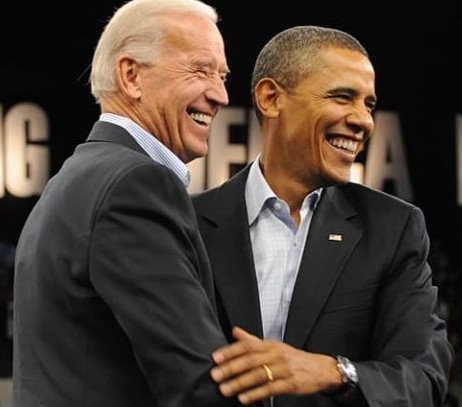
Following is former Vice President Joe Biden’s plan to empower Black Americans:
Joe Biden knows that African Americans can never have a fair shot at the American Dream so long as entrenched disparities are allowed to quietly chip away at opportunity. He is running for President to rebuild our economy in a way that finally brings everyone along—and that starts by rooting out systemic racism from our laws, our policies, our institutions, and our hearts.
This mission is more important now than ever before, as the health and economic impacts of COVID-19 have shined a light on—and cruelly exacerbated—the disparities long faced by African Americans. In April 2020, Biden called on the Centers for Disease Control and Prevention to collect more data regarding how COVID-19 is affecting communities, including breaking down its impacts by race. The data we’ve seen so far suggests that African Americans are dying from COVID-19 at a higher rate than whites. Long-standing systemic inequalities are contributing to this disparity—including the fact that African Americans are more likely to be uninsured and to live in communities where they are exposed to high levels of air pollution. African Americans also represent an especially high percentage of the front-line workers putting themselves at greater risk to sustain the economy and keep the rest of the country safe and fed—and are less likely to have a job they can do from home, forcing them to make the difficult choice between their health and a paycheck. While there’s a lot we don’t yet know about COVID-19, we do know that equitable distribution of resources, like testing and medical equipment, can make a difference in fighting the virus. Biden believes this should be a priority and action must be taken now.
COVID-19 is also having a disproportionate economic impact on African American families. African American small businesses have been hit hard, and over 90% of African American-owned businesses are estimated to be shut out of the initial relief program due to preexisting, systemic disparities in lending. This is especially dire given that African American families have less of a financial cushion to fall back on in hard times. Biden has been calling for the nation’s relief and recovery efforts to be equitable and just, including by designing relief programs in ways that avoid methods we know lead to disparate outcomes—so that funds can actually reach African American families, communities, and small businesses. President Trump has not heeded his warnings. If Biden were President today, he would make it a top priority to ensure that African American workers, families, and small businesses got the relief they need and deserve.
Tackling systemic racism and fighting for civil rights has been a driving force throughout Biden’s career in public service. He has a record of fighting for and delivering for the African American community. As a U.S. Senator he co-sponsored the Civil Rights Act of 1990 to protect against employment discrimination and led multiple reauthorizations of the Voting Rights Act, protecting African Americans’ right to vote. Biden also led efforts to reauthorize and extend the Fair Housing Act, and as Delaware’s Senator, was a vocal advocate and supporter of Delaware State University, the state’s Historically Black University.
Today, we need a comprehensive agenda for African Americans with ambition that matches the scale of the challenge and with recognition that race-neutral policies are not a sufficient response to race-based disparities.
The Biden Plan for Black America will:
- Advance the economic mobility of African Americans and close the racial wealth and income gaps.
- Expand access to high-quality education and tackle racial inequity in our education system.
- Make far-reaching investments in ending health disparities by race.
- Strengthen America’s commitment to justice.
- Make the right to vote and the right to equal protection real for African Americans.
- Address environmental justice.
ADVANCE THE ECONOMIC MOBILITY OF AFRICAN AMERICANS AND CLOSE THE RACIAL WEALTH AND INCOME GAPS
Invest in African American Businesses and Entrepreneurs
Approximately 4% of small business owners are African American, even though African Americans make up approximately 13% of the population. To build wealth in African American communities, we must invest in the success of African American businesses and entrepreneurs.
Ensuring equal access to credit and capital. African American businesses often lack the capital they need to succeed. African American businesses are rejected at a rate nearly 20% higher than the white-owned firms. Even worse, African American businesses that do get funding receive only 40% of the funds requested as compared to 70% for white businesses. To increase investment and access to capital, Biden will:
- Double funding for the State Small Business Credit Initiative. The Obama-Biden Administration created the State Small Business Credit Initiative (SSBCI) to support small businesses, driving $10 billion in new lending for each $1 billion in SSBCI funds. Biden will extend the program through 2025 and double its federal funding to $3 billion, driving close to $30 billion of private sector investments to small businesses all told, especially those owned by women and people of color.
- Expand the New Markets Tax Credit, make the program permanent, and double Community Development Financial Institutions (CDFI) funding. The New Markets Tax Credit has helped draw tens of billions of dollars in new capital to low-income communities, providing tax credits to investors in community development organizations that support everything from supermarkets to real estate projects to manufacturing plants. As part of his plan to reinvest in communities across the country, including in rural areas, Biden will also double funding for the Community Development Financial Institutions (CDFI) Fund, which supports local, mission-driven financial institutions in low-income areas around the U.S. This builds on Biden’s proposal to support entrepreneurs in small towns and rural areas by expanding both the Rural Microentrepreneur Assistance Program and the number of Rural Business Investment Companies, to help rural businesses attract capital.
- Improve and expand the Small Business Administration programs that most effectively support African American-owned businesses. The Small Business Administration’s (SBA) programs have been and remain one of the most effective ways of accessing capital for African American-owned businesses. Biden will strengthen these existing programs by:
- Ensuring the SBA has the funding it needs to support African American-owned business and others in the current crisis and beyond. Trump has once again proposed a massive cut of 25% in the SBA budget for FY2021, including a 35% cut in funding to Small Business Development Centers, a 20% cut to the SBA Microloan Program, and significantly increased fees for the 7(a) loan program, which is SBA’s main loan program for small businesses.
- Making permanent the successful Community Advantage loan program, originally created during the Obama-Biden Administration. The program, which provides capital for startups and growing small businesses located in particularly underserved communities through CDFIs and other mission-driven lenders, has been run as a pilot program since 2011. Biden will make this program permanent and reverse rules enacted by the Trump Administration that are making it more difficult for lenders to participate in the program and lend to African American-owned businesses and other businesses located in underserved communities.






